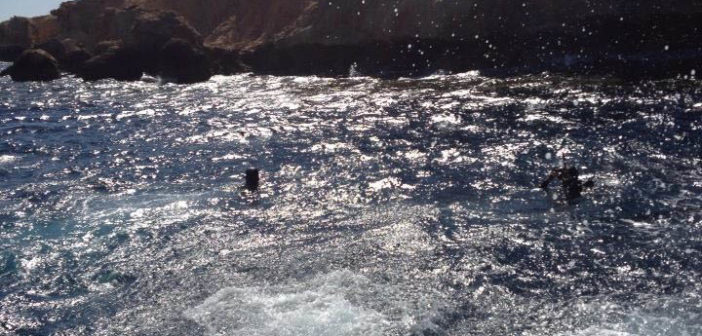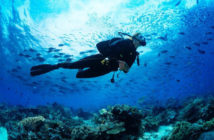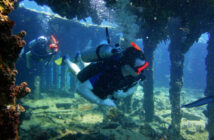“Even if you are a novice or experienced diver, if the Instructor or Divemaster doesn´t prepare you for the dive, you will hardly enjoy it.”
When students first start diving, most of the time their expectations are focused on going into the water immediately, receiving a brief explanation of what to and not to do from the professionals, without considering multiple facts involved in the dive. However, after finishing the Discover Scuba Diving course or the PADI Open Water manual, they become aware that there is additional valuable information to keep in mind, such as weather and wave conditions, wind, visibility, type of life we may find in the bottom, the way to enter and exit the water, and how and when to assemble and disassemble our equipment.
Even if you are a novice or experienced diver, if the Instructor or Divemaster doesn´t prepare you for the dive, you will hardly enjoy it. That’s why as a dive pro, you should be precise, assessing all the conditions in each dive, provide as much information as needed, and become a role model for your students and certified divers. You must be ready to (make a respectable job), so divers understand your signals and instructions under the water.
I remember when I gave my first briefings −it wasn´t long time ago−, they weren’t ones that I felt proud of. I was nervous, trying to gather all the factors after listening to different briefings from my coworkers with more knowledge. After weeks of practice, I felt more confident and my briefings began to have their own unique shape and style.
For that reason, here are some recommendations from the pro’s to take into account when preparing a dive briefing:
- Orientation
“A complete description on how to be oriented and what if possible to see, being concise.”
Francisco J. Davids (Course Director)
Argentina/Mexico
- Adaptation
“The history of the divers, so you can adapt depending on the experience of the divers, and the age: you won’t use the same vocabulary if they are 10 or if they are above 14 years old.”
Mylène Isartorial (Master Scuba Diver Trainer)
France
- Signals and instruments
“That they understand well the signals used for the communication and they study the importance of constantly monitoring their measuring instruments, like the SPG and the computer respectively.”
Didier Arduengo (Instructor)
Mexico
- Be a buddy
“Reminding divers and reinforcing the buddy system is another very important step in the briefing.”
Christina O. Donnovan (Instructor)
Ireland
- Have fun
“Some humor. Without a little bit of fun, the people are just listening partially especially when they dove a couple of times before. So, they already heard a lot of dive briefings and this is what makes them not listening. If you say something new, for them interesting, they will listen more carefully.”
Ronja Cempel (Instructor)
Germany
- Emergency procedures
“Consider Emergency procedures. E.g. lost diver procedures. Mostly you won’t need them, but it takes 30 seconds to say and you might regret it if you don’t. If you have a chance of running into other groups remind them to look for something characteristic of you so they don’t join the others’.”
Sietske van der Heyde (Instructor)
Zimbabwe/Canada
- Be unique
“It’s good to listen other briefings and to steal the parts that you find interesting. But don’t copy it entirely. You have a unique guiding style and your briefing should match that.”
Sietske van der Heyde
- Don’t build expectations
“Avoid too detailed description on the dive site. You may be dropped in slightly other place of; your dive with a drift or the visibility might be bad and that way you may build expectations you are not able to fulfill.”
Martyna Skura (Divemaster)
Poland
- Avoid scaring people
“If I have a DSD, I avoid explaining the rule of the lost diver because they are students and I should always have an eye on them. It is not an option for me to lose a student. And saying to DSD that it is possible that we get separated, will stress them even more.”
Mylène Issartial
- Equipmen and first aid kit
“Is a plus to add in your briefings details of how to carry their equipment to the boat, including where to find the first aid kit and the spare equipment in case they need to change something.”
Simon Abdul M. K (Divemaster)
Mexico/Lebanon









